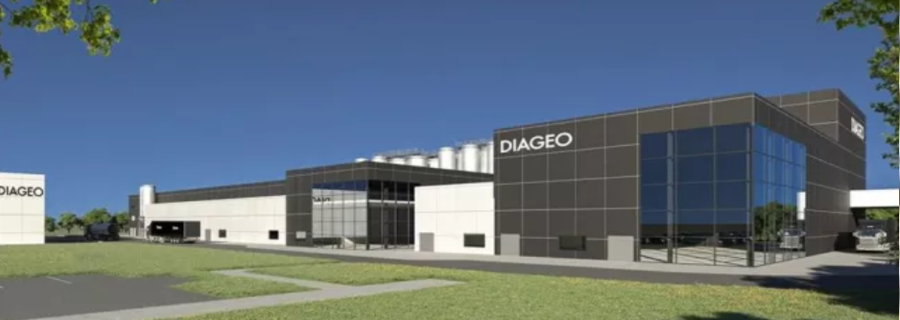Global drinks giant Diageo has issued a warning that further delays in the approval process for its planned carbon-neutral brewery near Newbridge, Co. Kildare, Ireland could jeopardize the EUR 200 million investment. This caution comes as An Bord Pleanála, the Irish planning authority, recently announced a deferral in the decision on the project until November 20th.
Diageo, renowned for its Guinness brand, had announced plans to invest EUR 200 million (USD 203m) in Ireland’s first purpose-built carbon neutral brewery on a greenfield site in Littleconnell, Newbridge, Co. Kildare in July 2022 (inside.beer, 15.7.2022) and obtained planning permission for the brewery project in March 2023.
However, a subsequent appeal lodged in April by a lobbyist from Athy has led to a delay in the project's advancement. The lobbyist argued that the brewery's location should be shifted to Athy on environmental grounds, contending that Athy holds the title of "the malting barley capital of Ireland." He asserted that such a relocation would obviate the necessity for more than 800 truck journeys annually to transport barley from Athy to the Littleconnell site, resulting in annual savings of over EUR 6.6 million for Diageo.
Initially, An Bord Pleanála had scheduled a decision date for August 28th. However, a backlog in cases and turnover of board personnel in the first half of 2023 contributed to the delay. The Irish planning authority has since appointed new members and is working to address the backlog.
A Diageo spokesperson expressed deep concern about the extended timeline, stating, "This project is time-sensitive, and further delays will jeopardize the rationale for this EUR 200 million investment in Ireland, to grow our global beer brands while meeting our targets to be Net Zero by 2030."
The spokesperson emphasized that the project would bring significant benefits to the local community, create Irish jobs, stimulate trade, and promote sustainability.
The proposed brewery in Littleconnell is expected to have a substantial economic impact, potentially providing up to 1,000 jobs during the 20-month construction phase and generating an additional 70 jobs once operational.

